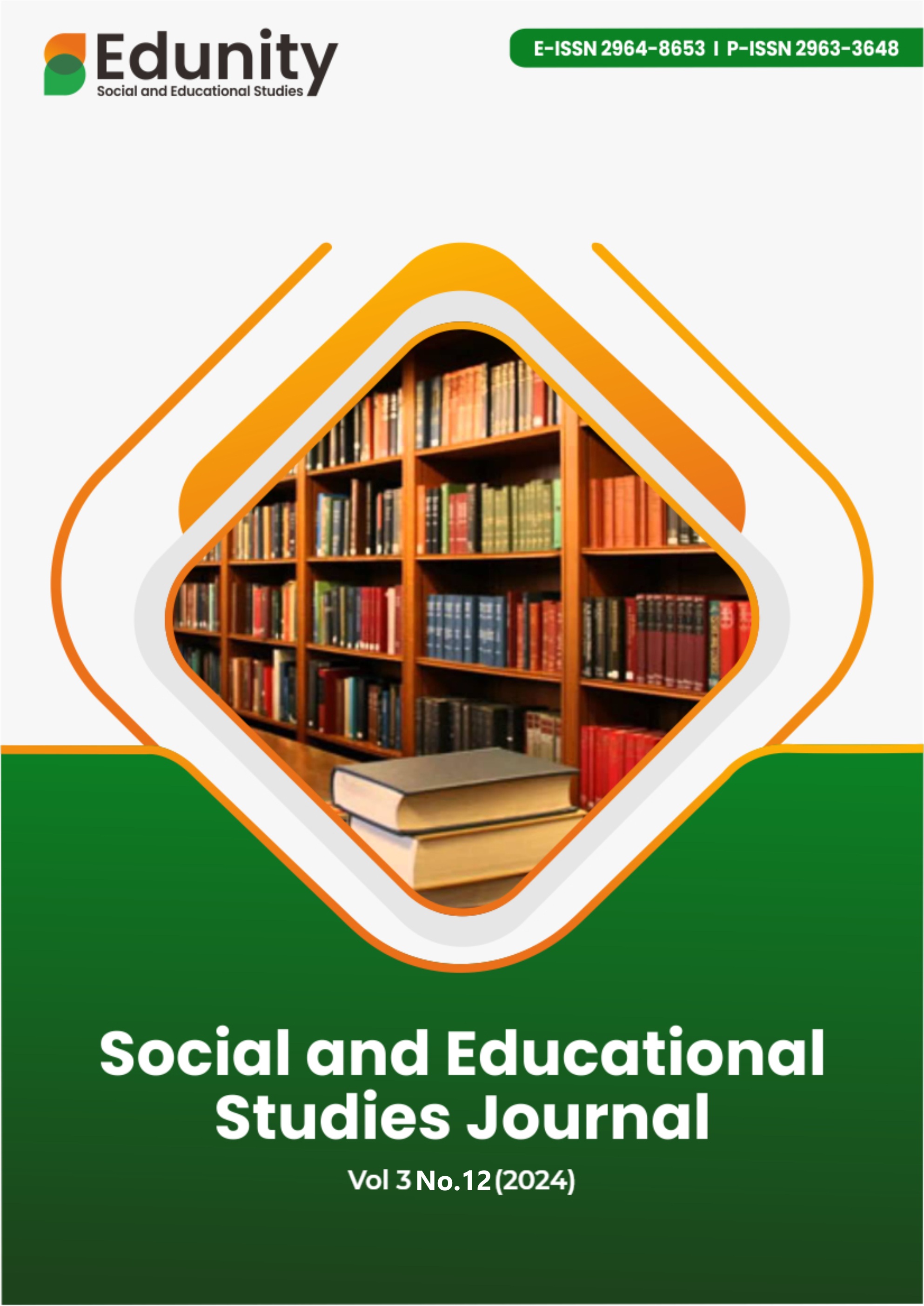Judges' Code of Ethics in Deciding Cases
DOI:
https://doi.org/10.57096/edunity.v3i12.339Keywords:
code of ethics, case, decisionAbstract
Judges play a vital role in upholding justice and public trust within the judicial system. This study examines the importance of the Judges' Code of Ethics in Indonesia, emphasizing its influence on the accountability and integrity of judicial decisions. The primary objectives are to analyze how the code serves as a guideline for judges and to assess its impact on public confidence in the legal system. Utilizing a normative juridical research method, the study relies on both primary and secondary legal materials, including legislative documents and case studies. The research involves a comprehensive literature review and a legislative approach to understand the ethical standards expected of judges in their professional conduct. The findings reveal that adherence to the Judges' Code of Ethics is crucial for maintaining impartiality, avoiding conflicts of interest, and ensuring fair trial processes. Ethical violations can significantly undermine public trust, leading to skepticism regarding judicial impartiality and the effectiveness of the legal system. The study highlights that judges must conduct themselves with integrity, uphold the principles of justice, and avoid any actions that could compromise their role. In conclusion, the Judges' Code of Ethics not only serves as a regulatory framework for judicial behaviour but also acts as a foundation for public confidence in the judiciary. For the legal system to function effectively, it is imperative that judges adhere to these ethical standards, ensuring that their decisions are perceived as fair and just.
References
Andriyani, Y. (2019). Implementation of Judges' Code of Ethics in Examining, Adjudicating and Deciding Cases. Logic: Journal of Multidisciplinary Studie, 10(1), 13-30.
Casarosa, F., Fajdiga, M., & Moraru, M. (2024). Freedom of Expression of Judges: European and National Perspectives. Taylor & Francis.
Jacob, S., Decker, D. M., Lugg, E. T., & Diamond, E. (2022). Ethics and law for school psychologists. John Wiley & Sons.
Joy, P. A. (2017). Lawyers Serving as Judges, Prosecutors, and Defense Lawyers at the Same Time: Legal Ethics and Municipal Courts. J. Prof. Law., 65.
Lubis, A. H. (2024). Initiating The Paradigm Of Transitive Legal Consideration An Endeavor To Maintain The Dignity Of Judges Through Decisions. Judex Laguens, 2(3), 382–398. https://doi.org/10.25216/ikahi.2.3.12.2024.382-398
Maggalatung, A. S. (2014, December 2). The relationship between facts, norms, morals, and legal doctrines in the consideration of judges' decisions. Journal of Cita Hukum, II(2), 186.
muhammad, a. k. (2014). ethics of the legal profession (Vol. 1). bandung: PT Citra Aditya Bakti,.
Muhit, R. A. (2023, February). The Role of the Code of Ethics for the Judiciary Profession on the Responsibility of Judges in Deciding Cases in Court. Lex Laguens: Journal of Law and Justice Studies, 1(1), 7.
Mulyadi, L. (2015). The Face of Judges' Decisions in Indonesian Civil Procedure Law Theoretical Perspectives, Practices, Making Techniques, and Problems. Bandung: PT Citra Aditya Bakti: Bandung.
Narindra, A. C., Salsabila, F. N., Ayuni, N., & Aulia, R. M. (2024). Analysis Of The Constitutional Court’s Decision Regarding The Age Limit For Presidential And Vice-Presidential Candidates. Problematika Hukum, 6(1), 29–43.
Nurul, Q. (2017). Legal Professional Ethics: The Four Pillars of Law. Makasar: CV. Social Politic Genius (Sign).
Raz, J. (2017). The rule of law and its virtue. In The rule of law and the separation of powers (pp. 77–94). Routledge.
satjipto, r. (2023). the science of law (Vol. 1). bandung: 2012.
Sayyida, R. (2020). Legal Sanctions Against Adhoc Judges who Violate the Code of Ethics for the Judge Profession. Logic: Journal of Multidisciplinary Studies, 11(2), 72.
Selfia, J. G. (2024). Implementation of Sanctions for Violations of the Code of Ethics for Judges by the Judges Honor Council in Indonesia. Karimah Tauhid, 3(4), 4960.
Supreme Court of the Republic of Indonesia Padang Religious High Court. (2024, October 16). (Supreme Court) Retrieved September 20, 2024, from https://www.pta-padang.go.id/pages/kode-etik-hakim

Downloads
Published
Issue
Section
License
Copyright (c) 2024 Farly Lumopa, Zaenal Arifin

This work is licensed under a Creative Commons Attribution-ShareAlike 4.0 International License.
Authors who publish with this journal agree to the following terms:
- Authors retain copyright and grant the journal right of first publication with the work simultaneously licensed under aCreative Commons Attribution-ShareAlike 4.0 International (CC-BY-SA). that allows others to share the work with an acknowledgement of the work's authorship and initial publication in this journal.
- Authors are able to enter into separate, additional contractual arrangements for the non-exclusive distribution of the journal's published version of the work (e.g., post it to an institutional repository or publish it in a book), with an acknowledgement of its initial publication in this journal.
- Authors are permitted and encouraged to post their work online (e.g., in institutional repositories or on their website) prior to and during the submission process, as it can lead to productive exchanges, as well as earlier and greater citation of published work.






